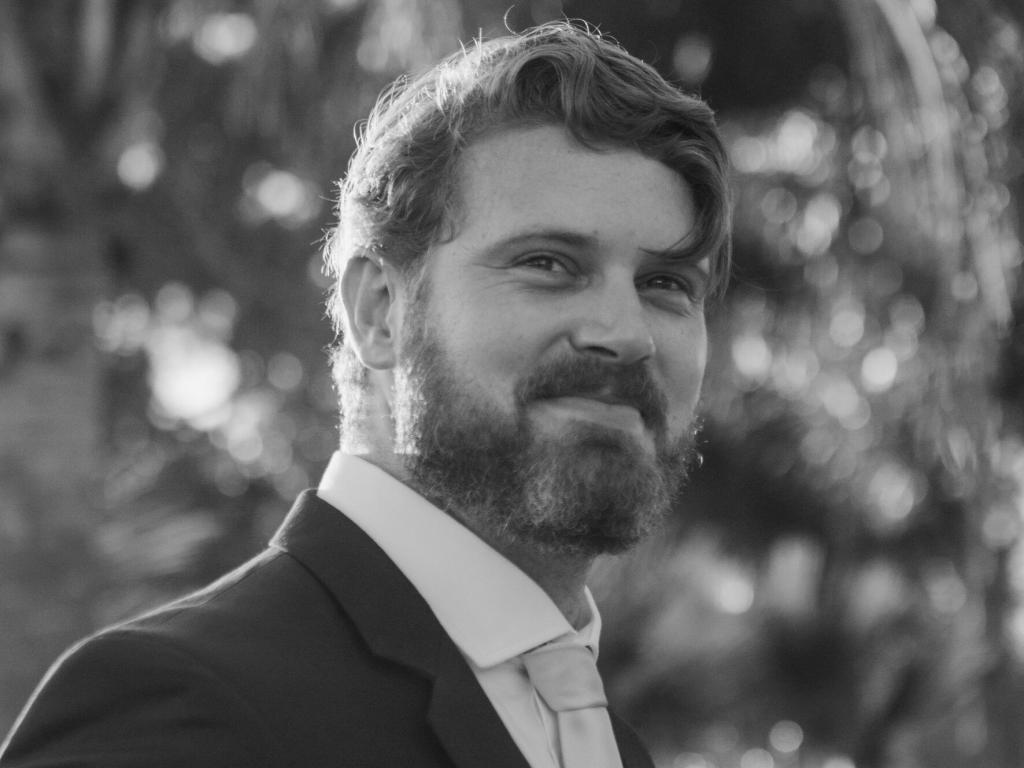‘The world needs financial risk specialists now more than ever’

When Ralph Rudd looked for a job after completing his PhD at UCT, there were many opportunities and possibilities, but he was finally drawn to Iceland and the position of Assistant Professor in Financial Engineering at Reykjavik University.
Ralph Rudd could probably not have travelled further north from South Africa for his new job at Reykjavik University in Iceland, just south of the Arctic Circle. The quantitative mathematician, born and raised at the tip of the African continent in South Africa, travelled to the island capital with his wife in 2021. Here, they had to get used to having only five hours of daylight in the middle of winter – and almost 24-hour sunlight in summer.
But this was only a small part of the adventure for Ralph. He was drawn to his new position in the relatively new field of financial engineering at a university that is rated among the top young universities in the world.
“These are such uncertain times globally, taking into account the COVID-19 pandemic, the climate crisis, the conflict in the Ukraine and its consequences for trade, economic stability and energy security across the globe,” says Ralph. “More than ever, the world needs financial risk specialists and accurate financial modelling and data analysis.”
He lectures on Reykjavik University’s MSc in Financial Engineering, an intensive and interdisciplinary programme combining financial expertise, engineering knowledge, mathematical and statistical tools and programming. The degree was designed in partnership with the Sloan School of Management and the Operations Research Centre at MIT.
Ralph, previously a senior lecturer at the African Institute of Financial Markets and Risk Management (AIFMRM) at UCT, has always enjoyed new challenges. In 2017, while doing his PhD in Quantitative Finance at UCT, he helped to pioneer a numerical method along with Professor Tom McWalter, and they presented their findings at a prestigious international conference in Barcelona, Spain.
He is still closely involved with AIFMRM, helping to supervise master’s dissertations and wanting to organise exchange programmes with students from Reykjavik University. He believes the institute is among the finest in the world. “The MPhil specialising in Mathematical Finance is rated in the top 100 programmes worldwide, as ranked by Eduniversal. It is an exceptional programme, and I say that as someone who has interacted with mathematics graduates from around the world.”
He says the employment offer rate of AIFMRM students is over 100%. “There is an extremely high demand for them, and most get more than one job offer.” He ascribes this to AIFMRM’s emphasis on practical, real-life interactions with financial institutions to help find innovative solutions and involving students with financial companies for maximum exposure to industry.
He recalls a story from his PhD studies when he and a colleague were invited to a leading financial services firm. The company presented them with a list of 20 to 30 issues they were struggling with. They asked Ralph and his colleague which areas they thought they could help. “We looked at each other and then told them that, basically, we could help them with every one of their problems.”
The institute’s commitment to its students is exceptional, says Ralph. He recalls how AIFMRM rallied to help students, especially during lockdown following the outbreak of COVID-19 in early 2020. Providing mobile data and assisting with physical relocation, as well as providing online counselling, were among many AIFMRM interventions to ensure students were able to cope with the rigorous demands of their academic programme along with the personal and emotional strain of studying online during a pandemic.
Ralph maintains close ties with Professor David Taylor and his former colleagues at AIFMRM, but he is fascinated by working in a field that is so new that there is no widely accepted definition of what it is yet. “Financial engineering includes financial mathematics and quantitative finance. But what it really is, is applied problem-solving. It is building models, doing simulations and considering all aspects of, say, building a nuclear power plant. Financial engineers from the Reykjavik University’s programme can walk out of university and be qualified engineers, or they can work on Wall Street.”
He is a passionate teacher and loves breaking down complex issues. Now that he has started to settle into his new professional role, he is also beginning to work on research ideas in collaboration with AIFMRM colleagues.
“For anyone wondering if a course like the MPhil in Mathematical Finance is for them, I want to say, once you have money, life is easier. With a master’s degree in finance, you will always be able to earn good money.” But there is an important social and psychological benefit to studying at AIFMRM. Ralph experienced it himself while working on his PhD, a time of his life during which he was often frustrated and felt isolated. Support from Professor Taylor and colleagues at AIFMRM helped him to keep going. “What I really see in AIFMRM graduates is the transformation. AIFMRM pushes them to do more than they thought they were capable of. They realise how robust and resilient they are, and for me, that is the primary contribution of this programme.”
